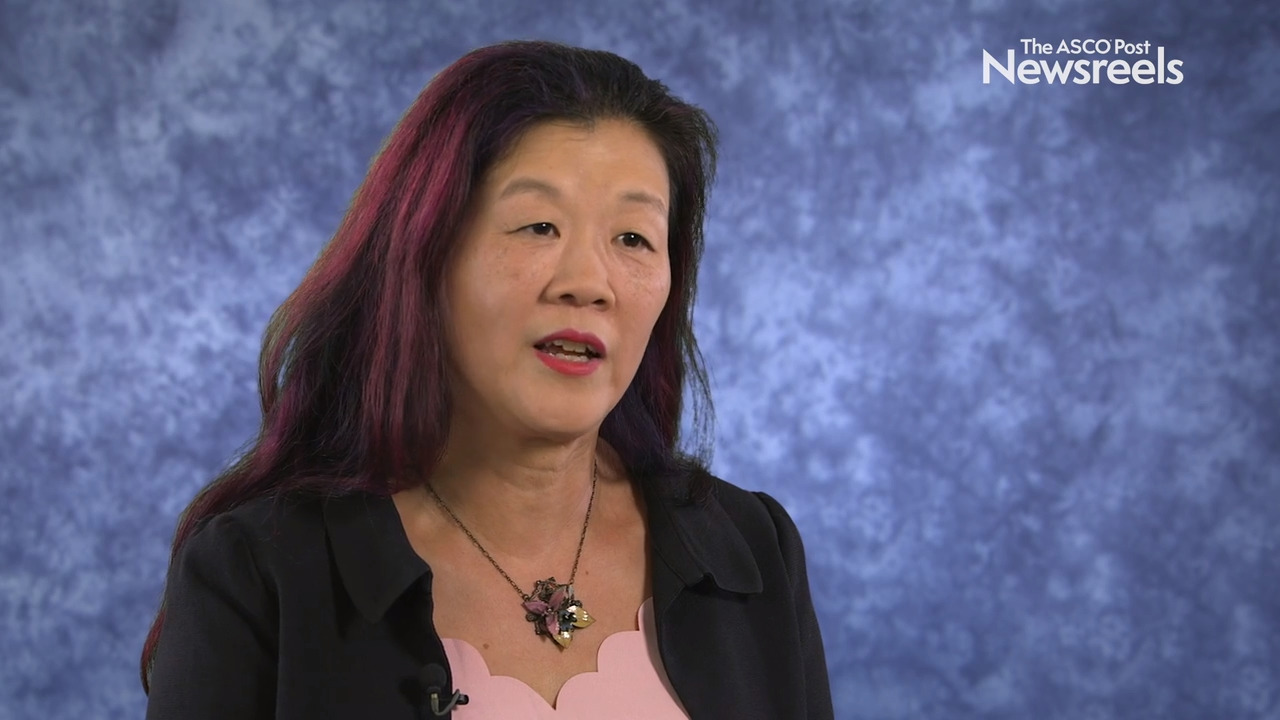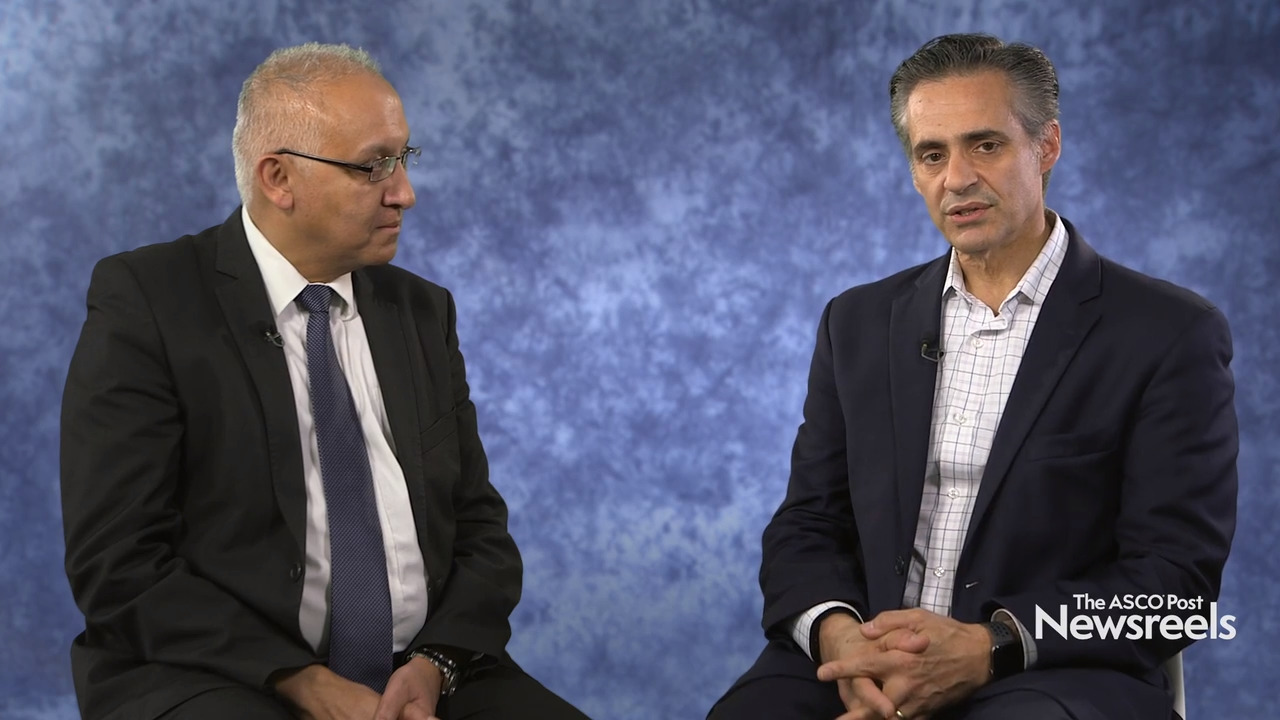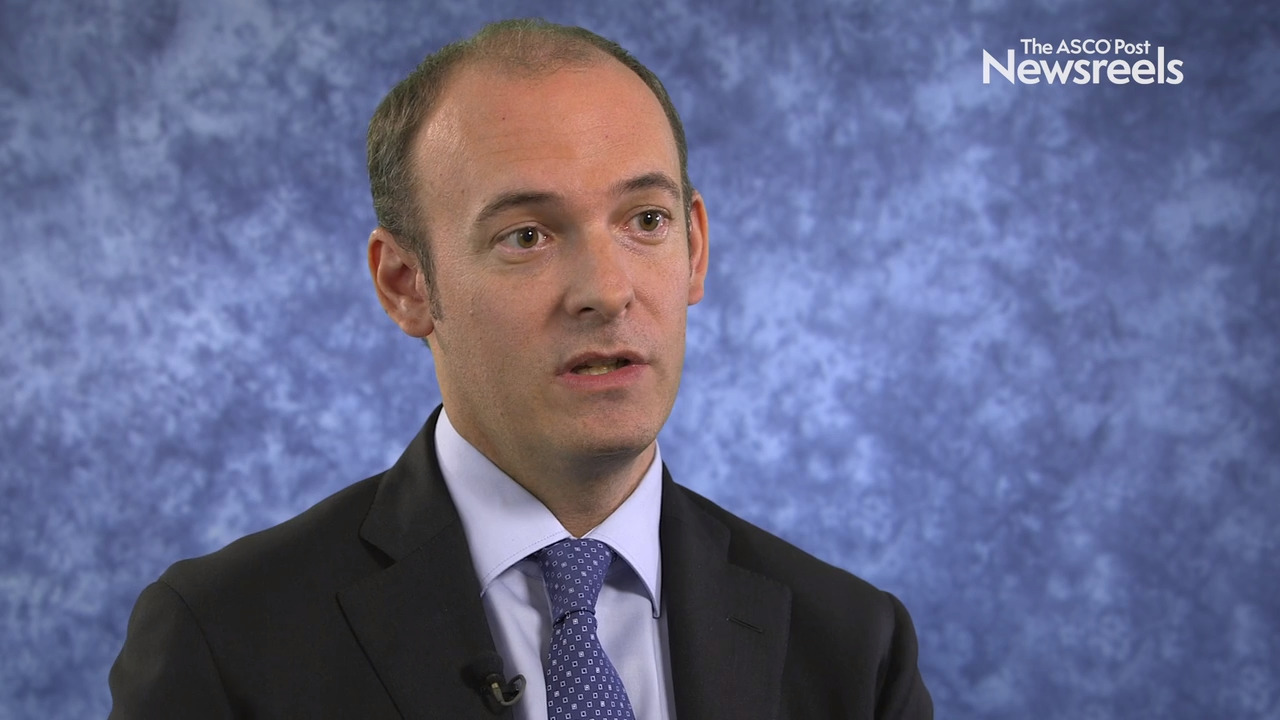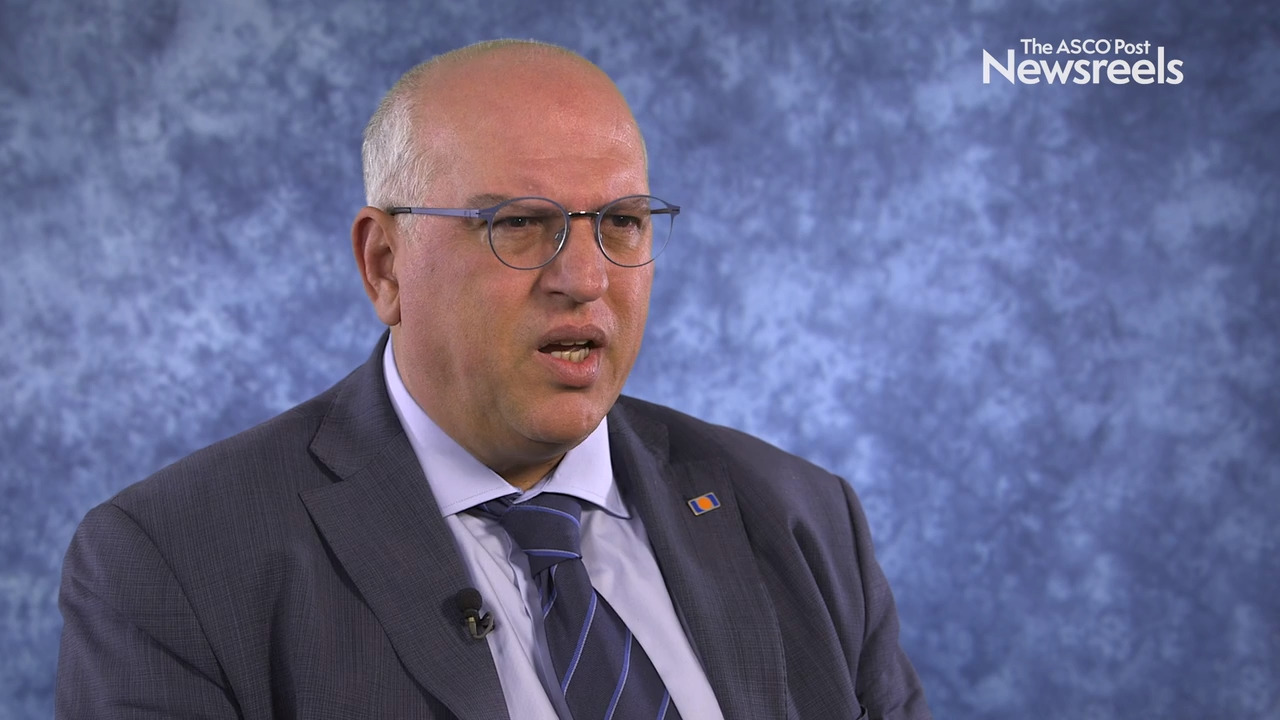Maha H.A. Hussain, MD, on Castration-Resistant Prostate Cancer: Olaparib/Enzalutamide/Abiraterone
ESMO 2019 Congress
Maha H.A. Hussain, MD, of Northwestern University Robert H. Lurie Comprehensive Cancer Center, discusses the phase III PROfound trial results on the efficacy of olaparib in men with metastatic castration-resistant prostate cancer whose tumors harbor alterations in DNA damage response genes and who had disease progression on prior hormone therapy (Abstract LBA12).
Laura Q.M. Chow, MD, of the University of Texas at Austin, Dell Medical School and LIVESTRONG Cancer Institutes, discusses phase II study findings that showed the ALK inhibitor ceritinib achieved durable intracranial response in patients with ALK-positive non–small cell lung cancer that has spread to the brain (Abstract 1478O).
Tim Meyer, PhD, of the University College London, and Lorenza Rimassa, MD, of Humanitas Research Hospital, Milan, discuss their phase III findings on prognostic and predictive factors of cabozantinib vs placebo in previously treated liver cancer, and outcomes based on clinical characteristics and plasma biomarkers in the advanced setting (Abstracts 749P & 678PD).
Mansoor R. Mirza, MD, of Copenhagen University Hospital, and Robert L. Coleman, MD, of The University of Texas MD Anderson Cancer Center, discuss phase III study findings, which showed that by adding veliparib to front-line carboplatin and paclitaxel and continuing it as monotherapy maintenance, the PARP inhibitor extended progression-free survival in women with newly diagnosed high-grade serous carcinoma of the ovaries or fallopian tubes or tumors of primary peritoneal origin (Abstract LBA3).
Aleix Prat, MD, PhD, of Hospital Clinic de Barcelona, discusses the findings of a meta-analysis showing that the HER2-E subtype may predict pathologic complete response beyond hormone receptor status in HER2-positive early breast cancer (Abstract 248P).
Paolo A. Ascierto, MD, of the Istituto Nazionale Tumori, Napoli, discusses phase III study findings confirming the superior activity of nivolumab vs ipilimumab in resected stage III/IV melanoma in terms of regression-free survival after a minimum follow-up of 36 months (Abstract 1310O).





